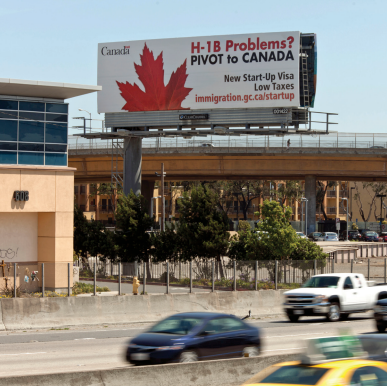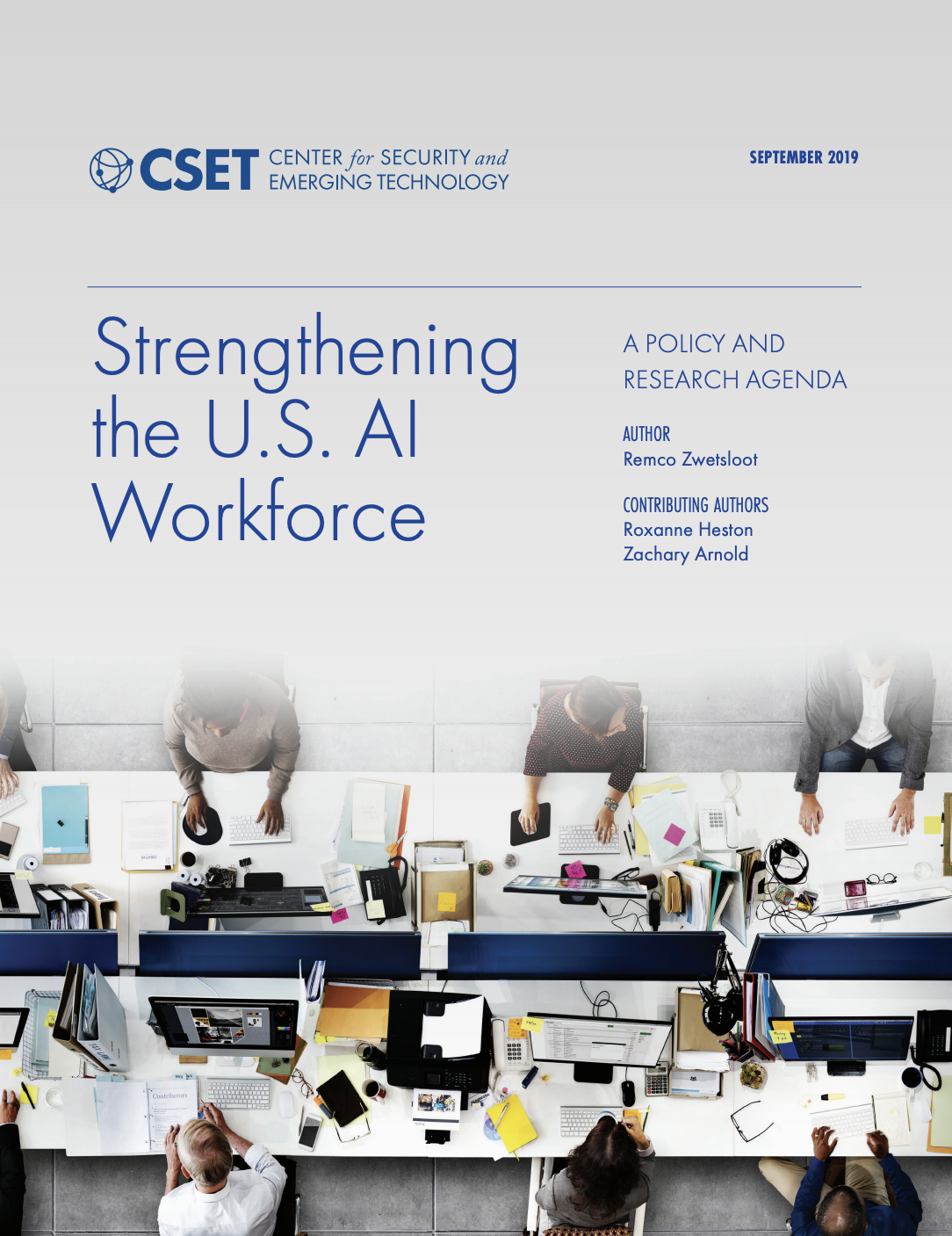Artificial intelligence is increasingly important to national security and economic growth, and human capital is a key determinant of nations’ strength in AI. To help strengthen the U.S. AI workforce, this report lays out what is currently known about domestic and global AI talent, identifies priorities for U.S. policymakers, and describes policy-relevant knowledge gaps that researchers should fill.
Our research highlights the existence of global AI talent shortages; the United States’ reliance on foreign talent to sustain its AI workforce; and recent increases in international competition for students, workers, and entrepreneurs (Section 1, “Background on the U.S. AI Workforce”). We recommend that policymakers adopt immigration reforms to ensure continued U.S. competitiveness in attracting and retaining foreign AI talent in the short term. Our long-term recommendation is to launch education and R&D programs to lay the foundation for domestic AI workforce growth (Section 2, “The Policy Agenda”). Researchers can support these efforts to strengthen the U.S. AI workforce by, among other things, measuring the global stock and flow of AI talent, identifying the key immigration problems encountered by foreign AI talent in the United States, and assessing the potential effectiveness of different domestic education programs (Section 3, “The Research Agenda”).

(Peter Dasilva/The New York Times/Redux)
Key Findings
- There is a significant talent shortage in AI, both domestically and globally. One consequence of U.S. talent shortages is that U.S. companies are moving AI R&D abroad.
- The United States heavily relies on foreign-born talent. For example, more than 50 percent of computer scientists with graduate degrees employed in the country today were born abroad, as were nearly 70 percent of enrolled computer science graduate students.
- The vast majority of foreign-born talent wants to stay in the United States. Among U.S.-trained PhD graduates in AI-related fields, around 80 percent have remained in the country.
- The United States’ established strength in top talent recruitment and retention is at risk due to adverse trends in U.S. immigration policy and efforts by other countries to open up new immigration pathways and launch talent attraction programs.
Key Policy Priorities
- Adopting immigration policies that eliminate existing barriers to recruiting and retaining foreign-born AI talent and halting the implementation of ongoing immigration reforms that reduce U.S. competitiveness.
- Formulating targeted policies that counter the harmful transfer of AI technologies and know-how. In so doing, ensuring against overly-broad restrictions that could make the United States inhospitable to foreign researchers and workers, which would worsen talent shortages.
- Launching education and R&D initiatives that simultaneously address domestic workforce shortages and fund neglected but important research areas.
- Developing strategies for government AI workforce development based on agency led investigations of AI talent demand and potential supply.
